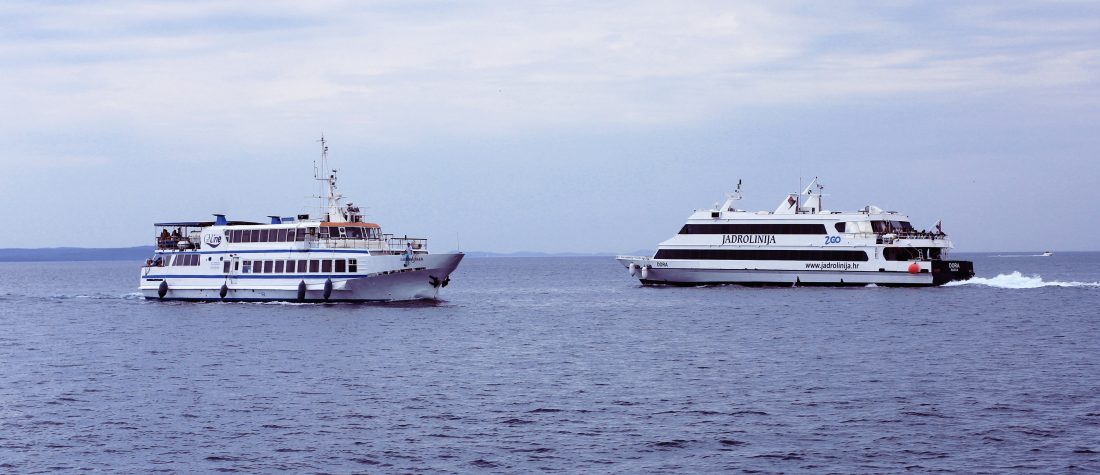United Kingdom passenger ferry and freight services have always been difficult to keep in the black. Since the 1970s, a slew of ‘curved balls’ – among them, the reduction in traditional shipping activities, the Herald of Free Enterprise disaster in 1987, the advent of low-cost airlines and the launch of Eurotunnel – have made the industry’s commercial viability extremely precarious. Yet, these huge seafaring vessels live in our hearts as British icons: for so many of us the summer vacation still begins with the thrill of boarding a giant ship, the anticipation of the holiday growing as the majestic White Cliffs of Dover recede beyond the ferry’s frothy wake…
The recent restructuring at P&O ferries with the loss of nearly 800 jobs is an unfortunate but inevitable consequence of the enormous conundrum these organisations face in their efforts to provide both a passenger transport service and a vital link in the UK’s logistical supply chain. The reality is that P&O is a losing business, which needs make serious changes in order to avoid folding forever. From pre-pandemic peaks of 7 million tourist passengers annually, numbers have shrunk by 90% to just 0.7 million in 2019. The impact on freight units is also significant, with a 36% drop in shipping figures between 2019 and 2021. No business could withstand that level of loss for long.
Taken in and of itself, news of the recent redundancies inevitably provokes public dismay and has led to knee-jerk condemnation of P&O by ministers. However, if the government were now to oblige P&O to act against its interests, it would inevitably lead to closure of the entire business, the implications of which are undeniably worse. Closure would involve the termination of at least a further 2200 of its remaining workforce as well as extensive collateral fallout affecting dockers, port workers, warehousing staff and other linked providers. All this, in addition to the damage arising from the Covid-19 pandemic and, now, a conflict in Europe, creates substantive supply-chain delays to businesses and customers. Put simply, it is a storm that the wider struggling sector is ill equipped to weather.
So maybe it is time to put the political opprobrium to one side and give due consideration to the counterarguments. DP World, having purchased P&O in 2019, has been quietly absorbing its annual £100m loss up to now. Peter Hebblethwaite, CEO of P&O Ferries, is on public record stating that their proposed remodelling of the business, difficult as it is to introduce overnight, will enable them to invest a further £250m in new ships and services to secure the future of the company. This has to be a passage worth navigating.
Mr Hebblethwaite acknowledges that errors were made in the failure to comply with consulting obligations with the trade unions, although questions have been raised independently as to why, in its current format, the union consultation is mandated at all. Nevertheless, giving notice without it was indeed unlawful (albeit not illegal) and DP World and P&O stress that they are compensating workers more generously specifically to reflect that. In fact, the enhanced severance packages on offer to those staff taking redundancy are larger than comparable businesses who have faced similar radical restructuring. The minimum payout is £15k and the average is £46.5k. Of the 786 seafarers impacted, 430 have already accepted their severance package and will receive payment in April. A further sixty-seven – captains and senior crew – have signed contracts with the new agency. P&O is working with International Ferry Management to bring in a new more flexible crewing model; one, which, it must be said, has already been proven to work across the industry, and, as evidence of its merits, has already been adopted by many P&O Ferries competitors.
Maritime employment law around the world is distinct to national employment legislation to account for the cross-border nature of work, including working away from home for extended periods, working across multiple jurisdictions with specific working and living conditions and employing multi-national workers. P&O, along with all ferry companies, welcomes the government’s commitment to increasing the minimum wage for all seafarers working in British waters and has called for a level playing field when it comes to pay and conditions on British ferry routes. Moreover, the practice of flagging ships to home ports in countries such as Cyprus is a common practice, used by many other ferry companies including Irish Ferries.
Considered in context, the restructuring announcement is not about reducing seafarers’ wages; rather, it is to provide a fully flexible crewing model that allows the company to create a resilient, sustainable, competitive and valued partner to fulfil the demands of their customers and to secure P&O as the proud British symbol of achievement that it deserves to be.


